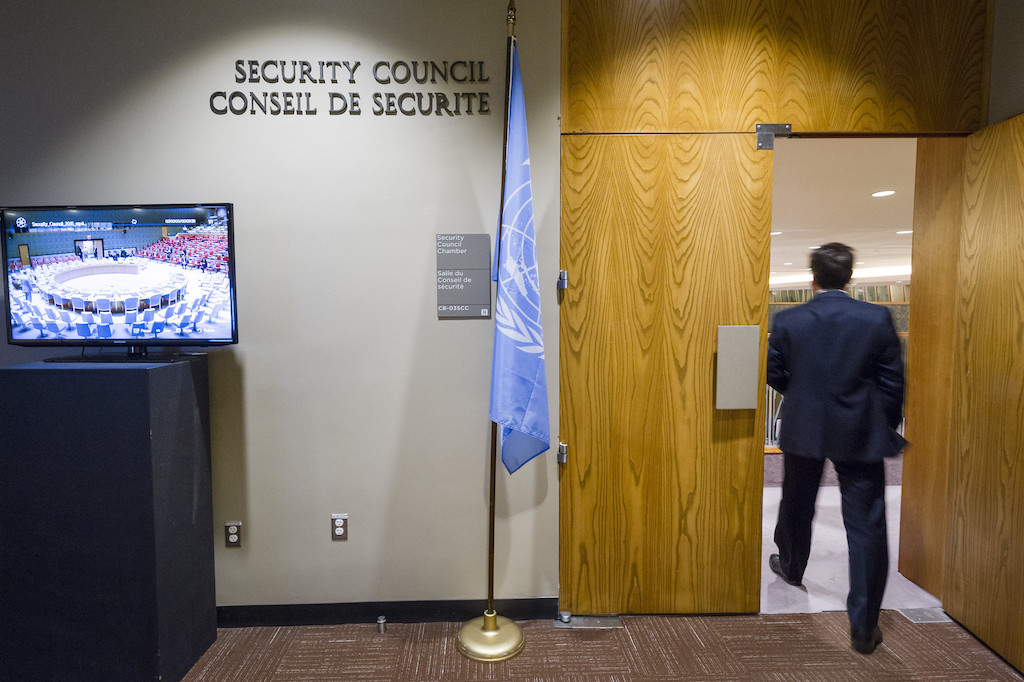A year ago today, Canada’s ambassador to the UN effectively confirmed that a half-dozen unpaid activists had derailed the government’s multi-year UN Security Council lobbying campaign, which included the prime minister flying to various countries.
On June 10, 2020, Marc-André Blanchard sent a private letter to other UN ambassadors defending Canadian policy on Palestinian rights.
“In response to recent claims received from a group of Canadians regarding Canada’s position on the Israeli-Palestinian conflict,” began the letter from Blanchard. It went on to bemoan “significant inaccuracies” in what the NoUNSC4Canada campaign was saying.
The federal government was put on the defensive a week before the Security Council vote by a multifaceted campaign launched in the Toronto Star with a general critique of Canadian foreign policy.
A subsequent open letter urging countries to vote against Canada’s Security Council bid due to its anti-Palestinian positions had the biggest effect on UN ambassadors. Signed by over 100 civil society groups and dozens of prominent individuals, it stated:
“[T]he Canadian government for at least a decade and a half has consistently isolated itself against world opinion on Palestinian rights at the UN. … Continuing this pattern, Canada ‘sided with Israel by voting no’ on most UN votes on the question of Palestine in December. Three of these were Canada’s votes on Palestinian refugees, on UNRWA and on illegal settlements, each distinguishing Canada as in direct opposition to the ‘yes’ votes of Ireland and Norway [Canada’s two competitors for a seat on the Security Council].”
The letter also noted that;
“Ottawa justified Israel’s killing of ‘Great March of Return’ protesters in Gaza and has sought to deter the International Criminal Court from investigating Israeli war crimes. In fact, Canada’s foreign affairs minister announced that should it win a seat on the UNSC, it would act as an ‘asset for Israel’ on the Council.”
As part of the Palestine-focused element of the campaign, 1,300 individuals emailed all UN ambassadors, urging them to vote for Ireland and Norway. Another 1,000 letters were sent to UN ambassadors as part of the broader critique of Canadian foreign policy, which also touched on Palestine.
The impact of flooding UN ambassadors’ inboxes was significant. While a Canadian MP or minister may be regularly deluged with messages on an issue, that’s probably not the case for Antigua’s ambassador to the UN.
A recent response to an access to information request made by activist Tamara Lorincz demonstrates how closely Canadian diplomats followed the NoUNSC4Canada campaign. Diplomat Andrea Niklaus, who is posted in the West Bank, sent an email titled “Tweet shared from PLO [Palestine Liberation Organization] account against Canada’s UNSC campaign” to more than a dozen diplomats, including Canada’s U.S. ambassador.
While parts of it are blacked out, Niklaus wrote:
“[W]e wanted to flag a tweet posted last night on the PLO Public Diplomacy account, which shares/quotes an article by the Canadian-Palestine Association against Canada’s UNSC bid. … We’ve seen some negative comments on our UNSC-related posts on our mission accounts in recent days, but this is the first we’ve seen such messaging amplified from an official Palestinian account. FYI, Ramallah [Canada’s diplomatic post in the West Bank] has inquired with a contact at the PLO as whether this represents their official position on Canada’s candidacy, and they promised to look into it and get back to us.”
(When Niklaus mentions “negative comments on our UNSC-related posts on our mission accounts,” she is referring to NoUNSC4Canada activists posting messages to dozens of diplomatic Twitter accounts promoting Canada’s Security Council bid.)
On June 17, 2020, Canada lost its bid to sit on the Security Council. The loss in the first round of voting was a stunning setback for the Trudeau government, which announced its desire for the seat four years earlier. Israel’s ambassador to the UN said he was “disappointed” Canada lost and the Israel lobby in Canada was briefly put on the back foot.
The NoUNSC4Canada campaign greatly raised the profile of Canada’s anti-Palestinian voting record at the UN, which Karen Rodman, director of Just Peace Advocates, expertly documented over two decades. More generally, the campaign thrust critical discussion of foreign policy into the mainstream and chipped away the mythology surrounding it.
Many progressives were wary of openly opposing Canada’s bid for a Security Council seat. But time has proved the importance of the campaign. Last month Norway and Ireland pushed to stop Israeli violence through the Security Council, a move blocked by Washington.
The two countries released a statement with other European Security Council members, France and Estonia, condemning Israeli airstrikes in Gaza and calling on Israel to cease settlement activities, demolitions and evictions. It’s highly unlikely the Trudeau government would have pursued a similar tack if it had won a Security Council seat.
The campaign proved that a small number of dedicated activists with a targeted, well-planned strategy could have a major impact on Canadian foreign policy.
A half-dozen ordinary people undercut the government’s campaign for a Security Council seat, slightly improved Palestinians’ diplomatic position and dented Canadian foreign policy mythology. That should be an inspiration for activists everywhere.
To mark the anniversary of Canada’s Security Council defeat, the Canadian Foreign Policy Institute will be hosting “International Solidarity Now: A gathering for a more just Canadian foreign policy” on June 17.
Yves Engler is a Montreal-based writer and political activist.
Image credit: Rick Bajornas/ United Nations Photo/Flickr




